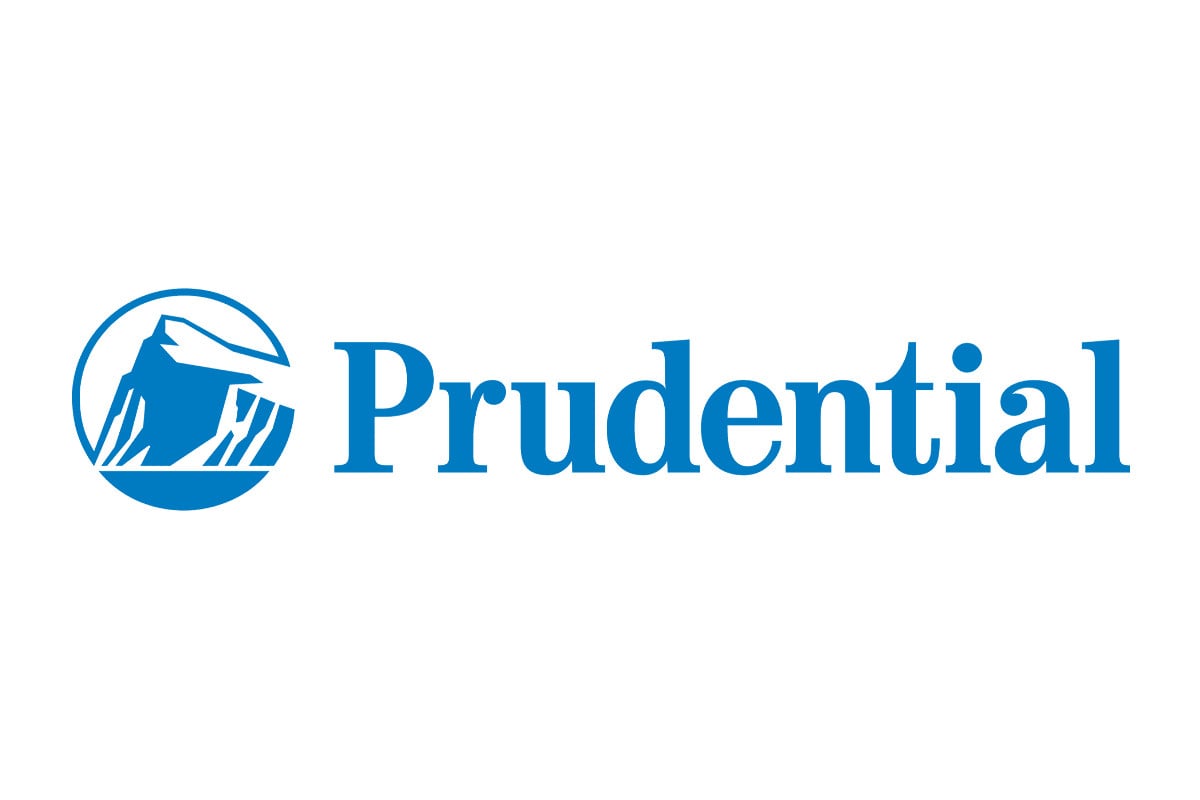Key takeaways
Northwestern Mutual leads our list of the best AD&D insurance and earns points for exceptional customer service.
Prudential’s policy often has additional benefits to support financial wellness.
Sun Life offers AD&D coverage as a stand-alone policy as well as a rider.
Reviewed monthly. Last updated: February 2026.
Accidents happen, and accidental death and dismemberment (or AD&D) insurance is designed to help you or your family in the aftermath. It’s usually offered by employers, though there are a handful of insurers that sell stand-alone policies.
To finalize this list, our experts looked at insurers that offer comprehensive AD&D policies — not just accidental death insurance, which covers deaths but not injuries. We assessed policy features and the percentages paid out for various injuries, as well as the amount of coverage you can buy.
Did you know…
Accidental death & dismemberment insurance (AD&D) is typically offered as supplemental group insurance through the workplace. It is most often available as a rider or policy add-on to term or whole life insurance, but the insurers on this list also offer AD&D coverage as a stand-alone insurance policy.
The best AD&D insurance policies in February 2026
NerdWallet rating | Complaint rate | |
|---|---|---|
Far fewer than expected. | ||
Close to the expected number. | ||
Close to the expected number. | ||
NerdWallet rates insurers at the company level, not the policy level. This means our star rating reflects the company as a whole, and not its AD&D insurance policy specifically. | ||
Why this insurer made the list: Northwestern Mutual tops our list not only because it offers AD&D as a life insurance rider and a stand-alone policy but the company has far fewer complaints than other insurers of its size.
Rating Breakdown
Financial strength rating
Exceptional
Online purchase
No
NAIC complaints
Far fewer than expected
Policies offered
Term & permanent
About Northwestern Mutual’s AD&D insurance
Like other insurers on this list, Northwestern offers group AD&D insurance on its own or as an add-on to your group life insurance policy.
Insurance type: Rider or stand-alone policy.
Coverage amount: Varies by employer.
Online experience: Northwestern Mutual’s site is easy to navigate, but lacks details about policies and coverage. You’ll have to connect with an advisor or your employer to learn more about the company’s AD&D coverage. Once you’re a policyholder, Northwestern Mutual does have an Apple and Android app.
What to know about applying for a policy: You won’t have to worry about a medical exam to qualify for Northwestern Mutual’s group accidental death and dismemberment coverage. It’s only available as a workplace benefit through group insurance, so you can’t be denied for health reasons.
Where this insurer stands out: Northwestern Mutual has far fewer complaints to state regulators than you’d expect for an insurer of its size and consistently gets high scores for customer satisfaction in the annual J.D. Power Individual Life Insurance Study.
Why this insurer made the list: Prudential’s AD&D coverage offers some unique financial wellness benefits such as tuition and daycare cost reimbursement.
Rating Breakdown
Financial strength rating
Exceptional
Online purchase
No
NAIC complaints
Close to expected
Policies offered
Term, permanent & no-exam
About Prudential’s AD&D insurance
Employers typically offer plans that are linked to your salary or with set amounts like $50,000 or $100,000, and Prudential is no exception. Your employer may also be able to add riders to this coverage that provide unique financial wellness benefits.
Insurance type: Rider or stand-alone policy.
Coverage amount: Varies by employer.
Online experience: Prudential has some policy information on the website and a fairly comprehensive FAQ section. However if you want to learn more about AD&D coverage, you’ll have to connect to your employer or a Prudential financial advisor to discuss your options.
What to know about applying for a policy: Since Prudential’s AD&D policy is a type of group life insurance, you won’t need to prove you’re in good health. You can sign up during open enrollment, or if you’ve experienced a qualifying event such as switching jobs or getting married.
Where this insurer stands out: Depending on your employer, you might be able to add a rider that reimburses your spouse or child for tuition and day care if you die in an accident, or one that pays extra if you die in a car while wearing a seat belt.
» MORE: Prudential life insurance review
Why this insurer made the list: Employers set their own coverage limits for this policy but can offer up to $1 million in AD&D benefits.
Rating Breakdown
Financial strength rating
Exceptional
Online purchase
No
NAIC complaints
Close to expected
Policies offered
Term
About Sun Life’s AD&D insurance
Similar to most insurers, Sun Life’s AD&D policy typically pays out 100% of its face value for accidental deaths, and 50% if you lose a limb (such as an arm or leg) or your speech, hearing or sight in one eye. It also pays 25% if you lose a thumb and index finger on the same hand.
Insurance type: Rider or stand-alone policy.
Coverage amount: $10,000 - $1 million (varies by employer).
Online experience: While Sun Life does share a few details about accidental death and dismemberment coverage online, you’ll need to reach out to your employer to learn more. Most of the details of AD&D policy specifics such as coverage amounts are determined by employers.
What to know about applying for a policy: Each employer sets its eligibility requirements for this AD&D policy, though in most cases you’ll need to work at least 30 hours a week to qualify.
Why this insurer stands out: Employers can choose a maximum benefit between $10,000 and $1 million, and some offer portability, which means you can take your coverage with you if you change jobs.
How we rate the best life insurance companies
✅ 445 life insurers reviewed
📝 210 policies assessed
🔢 1,515 data points analyzed
📊 Star rating categories
When NerdWallet evaluates life insurance companies, our editorial team considers the insurer's strengths and weaknesses, as well as the things that matter most to customers buying a long-term financial product. We then weigh these factors carefully:
💰 Financial strength (35%). We use AM Best ratings to confirm an insurer’s financial stability and ability to pay claims far into the future. The top life insurance companies have an exceptional financial strength rating of A+ or A++ (Superior).
🗣️ Consumer complaints (35%). Our top-rated life insurance companies have fewer than the expected number of complaints to state regulators over a three-year period, according to the National Association of Insurance Commissioners — so you can expect a smoother customer experience.
☎️ Consumer experience (20%). Insurers who allow consumers to contact them by email, phone and live chat earn the highest scores. The same goes for insurers who support online quotes, beneficiary changes and claims.
👀 Transparency (10%). Our methodology gives higher scores to transparent insurers who clearly display information about their policy options, coverage amounts and term lengths (if applicable) on their site.
⭐ What our star ratings mean
Companies with 5 stars are exceptional, with strong financials, diverse policy lineups and great reputations for customer service.
Companies with 4.5 stars are excellent, with solid financials and policy offerings, and good customer service track records.
Companies with 4.0 stars are good, and potentially great for people looking for niche coverage options.
Companies with 3.5 stars or fewer could do better in certain categories, like financial strength and customer complaints.
NerdWallet does not receive compensation for our star ratings or our reviews. Read more about our life insurance ratings methodology and editorial guidelines.

What is accidental death and dismemberment insurance?
AD&D insurance provides specific benefits in the case of death or serious injury due to an accident. One part of AD&D coverage is basically an insurance policy that pays out only if you die in an accident.
The second part pays out in the event of a serious injury such as dismemberment. These injuries are usually limited to losing a limb or digit, loss of function such as sight or hearing, or becoming paralyzed or partially paralyzed as a result of an accident.
AD&D insurance can be offered as a rider to a life insurance policy or as a stand-alone type of coverage, usually through your employer.



The cost of AD&D insurance
When comparing costs for AD&D insurance, you’ll notice it tends to be cheaper than most other types of life insurance. This is because these policies cover a fairly narrow set of circumstances and present a lower risk for insurers.
For example, for a 40-year-old applicant, a $200,000 AD&D policy would cost $13 a month, according to Quotacy, a Minneapolis-based life insurance brokerage. To compare, a term life policy of the same value would be around $15 a month.
Pros
- Typically cheaper than life insurance.
- Pays you for covered injuries.
- Some employers offer AD&D coverage as a benefit.
Cons
- Only pays out for injuries or death from accidents.
- Provides less coverage than disability and life insurance.
» MORE: Compare life insurance quotes
Alternatives to the best AD&D insurance
To recap, AD&D policies pay out only if you’re killed or seriously injured in an accident. They don’t cover deaths due to natural causes, illnesses and surgeries.d
If you want coverage for those types of deaths, look into a term life insurance policy. And if you already have life insurance but want to make sure you’re covered for accidents, you could buy a personal accident insurance policy. These policies kick in if you’re injured in an accident.
» MORE: Term life vs. AD&D insurance
More about top-rated life insurance companies
Looking for a different type of life insurance policy? Check out NerdWallet’s top picks across these categories:
Frequently asked questions
Does AD&D coverage pay out more if you die in an accident?
Does AD&D coverage pay out more if you die in an accident?
If you have life insurance with an accidental death rider or a stand-alone accidental death insurance policy in addition to life insurance and you die in a covered accident, your survivors may be eligible to receive both the standard and the accidental death benefit.
What qualifies as an accidental death?
What qualifies as an accidental death?
For the purposes of AD&D insurance, the death needs to specifically be a result of the covered accident. In some cases, the death also needs to happen within a certain timeframe after the incident.
Some common scenarios that are often not included in these policies are drug overdoses, deaths that occur while committing a crime and death or injury from high-risk activities or as a result of war.
Do I need both AD&D and life insurance coverage?
Do I need both AD&D and life insurance coverage?
You might, especially if you work in a high-risk job. It’s more important to have life insurance because it pays out when you die regardless of the cause. AD&D only covers a very specific set of circumstances but if your employer offers it as a workplace benefit free of charge, there’s no reason not to accept the coverage.
But AD&D coverage may be particularly helpful if you work in a profession such as construction or manufacturing that has a more significant risk of injuries or death due to accidents.
Article sources
NerdWallet writers are subject matter authorities who use primary, trustworthy sources to inform their work, including peer-reviewed studies, government websites, academic research and interviews with industry experts. All content is fact-checked for accuracy, timeliness and relevance. You can learn more about NerdWallet's high standards for journalism by reading our editorial guidelines.
- 1.J.D. Power. Life Insurance Customer Satisfaction Varies Widely Based on Carrier and Distribution Channel, J.D. Power Finds. Accessed Jan 29, 2026.




